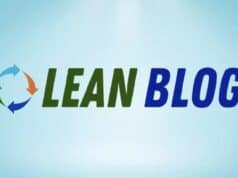I'm currently reading a fascinating and eye opening book, The World Is Flat: A Brief History of the Twenty-first Century by Thomas L. Friedman, of the New York Times. Friedman has written numerous books on globalization and the Middle East, but this time he turns his sights to the “flattening” world, driven by the rise of India and China, primarily.
There was one interesting item about Wal-Mart, who often gets blamed for pushing suppliers to China, in search of the rock bottom lowest cost. David Glass, who was president and CEO from 1988 to 2000, says:
“We are much better off if we can buy merchandise made in the U.S. I spent two years going around this country trying to talk people into manufacturing here. We would pay more to buy it because the manufacturing facilities in those towns [would create jobs] for all those people who shopped in our stores.”
Glass then blames Sanyo and other companies for being the ones choosing to not produce in the U.S.
Again, quoting Glass, “… for the most part people in this country have abandoned the manufacturing process. They say, ‘I want to sell to you, but I don't want responsibility for the buildings and the employees [and health care]. I want to source it somewhere else.”
I'm not sure if I completely buy that. Another outstanding book that I've read recently,
China, Inc. : How the Rise of the Next Superpower Challenges America and the World, lays out a different case. It paints a picture of Wal-Mart having enormous leverage over suppliers and the ability to dictate price. Knowing their suppliers' costs and comparable China costs helps them force “the China price”, as we see in other industries, namely automotive.
In one case, an American umbrella manufacturer (unwisely) asked for a 5% price increase (they should have used lean techniques to cut their costs!). Wal-Mart demanded a 5% price reduction, and found a Chinese company that could meet that price. So much for Wal-Mart's assertion that “they would pay more” for U.S. goods (or that philosophy has changed since Glass became Chairman and stepped away from the CEO role).
Does anyone have first hand experience with this? How would things develop differently if Wal-Mart had a Toyota-style supplier development organization? With Wal-Mart buying directly from so many manufacturers, couldn't they help manufacturers reduce costs (among other lean benefits!!) rather than just running to China?
Please scroll down (or click) to post a comment. Connect with me on LinkedIn.
Let’s work together to build a culture of continuous improvement and psychological safety. If you're a leader looking to create lasting change—not just projects—I help organizations:
- Engage people at all levels in sustainable improvement
- Shift from fear of mistakes to learning from them
- Apply Lean thinking in practical, people-centered ways
Interested in coaching or a keynote talk? Let’s start a conversation.








